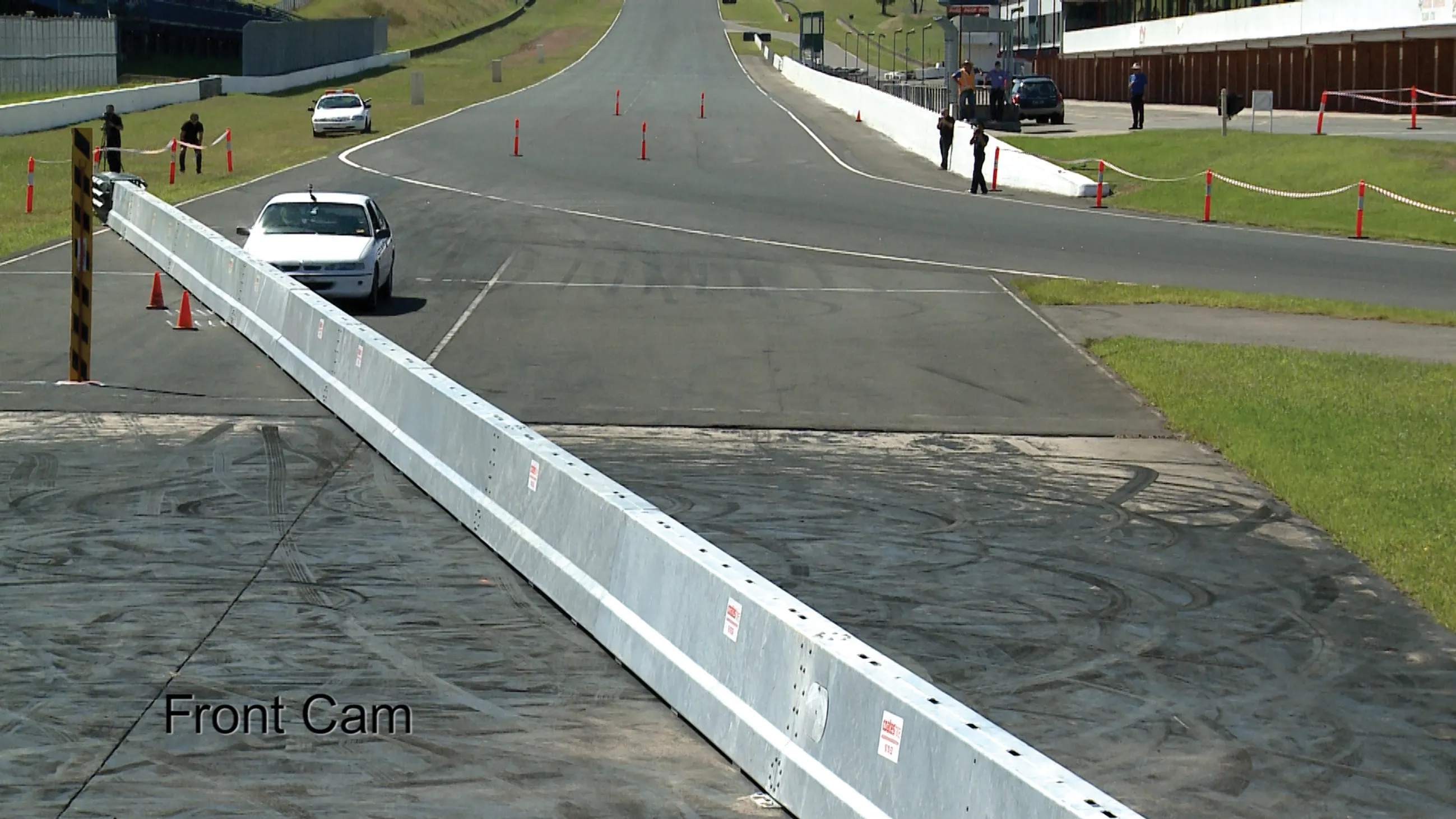A live crash demonstration of the Highway Care (HC) manufactured BarrierGuard 800 portable steel safety barrier was staged recently at Eastern Creek Raceway in Sydney, Australia. Organised by the Boylan Group, Highway Care International’s (HCI) partner, and Australia’s largest equipment hire company, Coates Hire, the event drew 200 Australian engineers, designers and road industry professionals and showcased technology already established throughout Europe.
June 18, 2012
Read time: 2 mins

A live crash demonstration of the 1529 Highway Care (HC) manufactured BarrierGuard 800 portable steel safety barrier was staged recently at Eastern Creek Raceway in Sydney, Australia.
Organised by the Boylan Group, Highway Care International’s (HCI) partner, and Australia’s largest equipment hire company, Coates Hire, the event drew 200 Australian engineers, designers and road industry professionals and showcased technology already established throughout Europe.
Racing car driver Matt Sofi, a Formula 3 competitor and defensive driving instructor, drove the test vehicle into the barrier at 80km/h at an angle of 15°. Knowing the potentially jarring forces unleashed when a vehicle impacts with an inanimate object at high speed, Sofi was said by HCI to have approached the staged crash demonstration with a fair degree of caution.
“I was surprised because, with the initial hit, it didn’t bounce you off into another lane,” Sofi said. “The car was still straight and in a position where you could stop in a controlled manner and in addition damage to the car and the barrier was confined to just a few scratches.”
Motorcycle Council of New South Wales chairman Chris Burns was another said to have been impressed with the barrier’s safety capabilities. He described it as the most “motorcycle friendly” he had seen.
Organised by the Boylan Group, Highway Care International’s (HCI) partner, and Australia’s largest equipment hire company, Coates Hire, the event drew 200 Australian engineers, designers and road industry professionals and showcased technology already established throughout Europe.
Racing car driver Matt Sofi, a Formula 3 competitor and defensive driving instructor, drove the test vehicle into the barrier at 80km/h at an angle of 15°. Knowing the potentially jarring forces unleashed when a vehicle impacts with an inanimate object at high speed, Sofi was said by HCI to have approached the staged crash demonstration with a fair degree of caution.
“I was surprised because, with the initial hit, it didn’t bounce you off into another lane,” Sofi said. “The car was still straight and in a position where you could stop in a controlled manner and in addition damage to the car and the barrier was confined to just a few scratches.”
Motorcycle Council of New South Wales chairman Chris Burns was another said to have been impressed with the barrier’s safety capabilities. He described it as the most “motorcycle friendly” he had seen.







